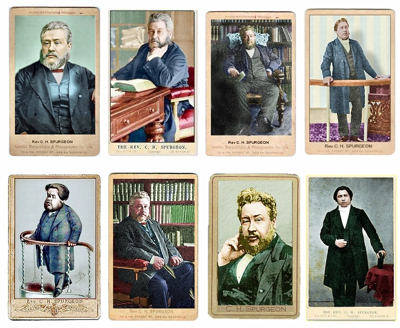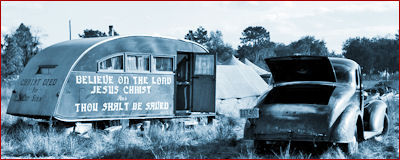by Dan Phillips
Preface: I know, this is longer than my usual. But I think that I'd have a mass uprising on my hands if I extended it to a third. So make yourselves comfortable and, without further eloquence....

We began looking at the subject of
repentance here on Tuesday. Then over at my place, on Wednesday, we took a little
side-trip into the topic of apologies. Now we return to identify what I think is a
vital, often missing element in how many Christians think of and deal with their sin(s).
First, though, let me just briefly (and probably unnecessarily) note that both of those posts, as well as this one, could easily be multiplied by a dozen or two. I almost have to
force myself to write this, because I am so conscious of the many implications and related issues that beg for development here. Alas, those pleas must go denied.
Let's suppose that at least some
Biblical reality has come to bear. Perhaps we
fled for a time, jumping at shadows, knowing no real peace of mind (Proverbs 28:1a). Perhaps we tried
blame-shifting (1 Kings 18:17), or
lashing out (1 Samuel 20:30) or
vain, nauseating shows of religion (Proverbs 28:9; Isaiah 1:12-20). But now the Holy Spirit has
arrested us. The Holy Spirit has brought days and nights of
misery (Psalm 32:3-4). He has used the word, spoken His "
Thou art the man" (2 Samuel 12:7), and
His word struck home to our heart.

But what now? We begin to see the sin as God sees it. We admit to God that it is sin, agreeing with Him.
And?
The element I have in mind is
mortification. It is dealing absolute, final, howling
death to that specific sin, from its root to its branches. It is seeing it
dead, dealing
death to it,
killing it, depriving it of all means of life and burying it.
Here I think of Luther and Paul.
It was
Luther who said, in
Thesis #1 (timely, eh? I'm here all week! Try the veal!), "When our Lord and Master, Jesus Christ, said 'Repent,' He called for the entire life of believers to be one of repentance." And it was
Paul who wrote,
So then, brothers, we are debtors, not to the flesh, to live according to the flesh. For if you live according to the flesh you will die, but if by the Spirit you put to death the deeds of the body, you will live. For all who are led by the Spirit of God are sons of God. (Romans 8:12-14)
Get that:
if (A) by the
Spirit, (B)
you (C)
put to death the deeds of the body, (D) you will
live. There's a whole theology of Christian living in that verse, but let's keep it simple. Paul is saying:
- That our objective must not be to wound sin, nor to weaken sin, nor to hamper nor cripple sin — but to kill it, to put it to death.
- It is we who are commanded to do it, and so we who must do it. To give it no thought, or to shrug it off on God, is to thumb our nose in God's face. Yet...
- We cannot do it unaided, but can only do it by the Holy Spirit's aid.
This is the Christian life. It is characteristic of being a Christian. The many, many folks who isolate verse 14 and try to fabricate some mythology of living by semi-revelation does great violence to the context. Let me set it out like this:
- To be a son of God is, definitionally, to be led by the Spirit. Being Spirit-led is not a subset among Christians. The two sets (sons-of-God and Spirit-led) are co-extensive.
- To be led by the Spirit is to put to death the deeds of the body.
- To put to death the deeds of the body is to live according to the Spirit, rather than the flesh.
At least a few of you are shouting "Owen! Owen!" at your monitors. So here indeed is the great man, on this passage, in words of gold that might well be written on the front-page of anyone's Bible:
Do you mortify;
do you make it your daily work;
be always at it while you live;
cease not a day from this work;
be killing sin or it will be killing you (p. 47, Overcoming Sin and Temptation; Crossway Books: 2006, Kelly M. Kapic and Justin Taylor [emphases added])
But so often we do
everything but kill our sin. We grant it was sin, perhaps, yes; we feel bad about it, we do a bit of this and that about it, plucking at its edges... yet we keep sneaking it crumbs and morsels, a bit of water here and a bit of wine there. We seem bound and determined to keep it alive — maybe just a little, maybe on the sly; but
alive nonetheless.
How so? Well, positively, we find some way to cushion our darling sin, to protect it, to provision it. We focus on others' contributions ("If my wife hadn't...."; "If my pastor would only...."), or others' behavior ("What _____ did is a lot worse"). Or we find some obscure author or big-name apostate who says our sin isn't really sin — and maybe we don't go
that far, but we use that to attach an IV to keep our sin hydrated enough to stay alive.
Work at it hard enough, and we can see ourselves as noble heroes or tragic martyrs. I fear I've seen that in folks struggling with temptations to sexual sin, for instance — in theory, they grant the sinfulness of the sin... yet they expend an awful lot of effort to protecting its tragic dignity.
Or, negatively, we refuse to deal death to it. We refuse to tear down our connections to that sin, the monuments we've raised to it, the apparatuses for indulging in it. We hide the magazines, rather than
burn them. We don't go into that place... though we drive by it. We maintain those corrupting friendships, relationships, subscriptions, memberships, associations. We are private and soft-spoken in our expressions of repentance. Our disownings are carefully-worded and pride-sparing.
What we need to do, of course, is
see the sin the way God sees it. God
doesn't understand it. God
doesn't think it's technically wrong, but kinda wistfully cute in a way. No, God
hates it (Hebrews 1:9), He
loathes it, He
abominates it.
How much does God
hate my sin, your sin? With such a molten hatred that
nothing but the death of His dear Son could make it possible for Him to look on us with other than a white-hot fury (cf. Matthew 26:36-46). See Him hanging yonder, on the Cross. Why? For
that sin, because nothing but the Lord Christ's death and His blood could atone for
that sin, and bring you and me to God as other than damned, doomed, hopeless criminals.
So dash all rationalizations and equivocations and evasions and minimalizations. Burn all bridges. Disown! Flee!
Kill! Ask God to help you to
hate that sin as He hates sin. Would you be content to share your bed with
just a few potato-bugs, or have
just a little dog-dung on your ice cream? Ask God to help you see what you did to your spouse, your friend, your parents, your children, your neighbor — ask Him to help you see it as He sees it. Find the root of it in your heart. Pour spiritual Round-up on it, kill it dead, all of it, roots to branches. Don't rest, don't think it's done, until it's
gone, and all traces renounced, disowned, dead by your own hand.
This is part of what it means to "put on the Lord Jesus Christ, and make no provision for the flesh, to gratify its desires" (Romans 13:14).
I'll close with
words far better than mine; I recommend that you read them aloud:
The Christian is to proclaim and prosecute an irreconcilable war against his bosom sins; those sins which have lain nearest his heart, must now be trampled under his feet. ...Soul, take thy lust, thy only lust, which is the child of thy dearest love, thy Isaac, the sin which has caused most joy and laughter, from which thou has promised thyself the greatest return of pleasure or profit; as ever thou lookest to see my face with comfort, lay hands on it and offer it up: pour out the blood of it before me; run the sacrificing knife of mortification into the very heart of it; and this freely, joyfully, for it is no pleasing sacrifice that is offered with a countenance cast down — and all this now, before thou hast one embrace more from it.

...Who is able to express the conflicts, the wrestlings, the convulsions of spirit the Christian feels, before he can bring his heart to this work? Or who can fully set forth the art, the rhetorical insinuations, with which such a lust will plead for itself? One while Satan will extenuate and mince the matter: It is but a little one, O spare it, and thy soul shall live for all that. Another while he flatters the soul with the secrecy of it: Thou mayest keep me and thy credit also; I will not be seen abroad in thy company to shame thee among thy neighbors; shut me up in the most retired room thou hast in thy heart, from the hearing of others, if thou wilt only let me now and then have the wanton embraces of thy thoughts and affections in secret. ...Now what resolution doth it require to break through such violence and importunity, and notwithstanding all this to do present execution? Here the valiant swordsmen of the world have showed themselves mere cowards who have come out of the field with victorious banners, and then lived, yea, died slaves to a base lust at home. As one could say of a great Roman captain who, as he rode in his triumphant chariot through Rome, had his eye never off a courtezan that walked along the street: Behold, how this goodly captain, that had conquered such potent armies, is himself conquered by one silly woman. (The Christian in Complete Armour, William Gurnall (Banner of Truth: 1995 [reprint of 17th century work]), p. 13)
"Be killing sin, or it will be killing you." Amen.


 f all the philosophers in the world should contradict the Scriptures, so much the worse for the philosophers; their contradiction makes no difference to our faith. Half a grain of God’s word weighs more with us than a thousand tons of words or thoughts of all the modern theologians, philosophers, and scientists that exist on the face of the earth; for God knows more about his own works than they do. They do but think, but the Lord knows.
f all the philosophers in the world should contradict the Scriptures, so much the worse for the philosophers; their contradiction makes no difference to our faith. Half a grain of God’s word weighs more with us than a thousand tons of words or thoughts of all the modern theologians, philosophers, and scientists that exist on the face of the earth; for God knows more about his own works than they do. They do but think, but the Lord knows.









 The first part of the preface has to be this: I think the church, overall, is in trouble. The church is not actually very careful these days about being the church or even knowing what it means to be "the church." I think it's generous to call what passes for Christianity these days "moralistic, therapeutic deism" because "moralistic, therapeutic deism" indicates that the people who practice this stuff think there is actually a moral standard, there is actually a difference between being well and being unwell, and that there is actually a Deity rather than just an invisible rabbit we can talk to or just a vague sense that duckies and puppies are nice. The church is in trouble because its ability to define itself is really as bad as its ever been, but probably not any worse than the worst it has ever been.
The first part of the preface has to be this: I think the church, overall, is in trouble. The church is not actually very careful these days about being the church or even knowing what it means to be "the church." I think it's generous to call what passes for Christianity these days "moralistic, therapeutic deism" because "moralistic, therapeutic deism" indicates that the people who practice this stuff think there is actually a moral standard, there is actually a difference between being well and being unwell, and that there is actually a Deity rather than just an invisible rabbit we can talk to or just a vague sense that duckies and puppies are nice. The church is in trouble because its ability to define itself is really as bad as its ever been, but probably not any worse than the worst it has ever been. But here's the thing -- it seems to me that if Christ died for our sins in accordance with Scripture, and was buried, and then raised on the third day in accordance with Scripture, our primary job is not to argue with people who think that the primary objective of church is to make it go poorly for those who are gay; our job, if Christ is seated at the right hand of the Father, is not to convince others that we don't have defective and submissive genes which force us to seek out a reward for doing good things; our job, if Christ is coming again to judge the living and the dead, and his kingdom will have no end, is not to start a conversation.
But here's the thing -- it seems to me that if Christ died for our sins in accordance with Scripture, and was buried, and then raised on the third day in accordance with Scripture, our primary job is not to argue with people who think that the primary objective of church is to make it go poorly for those who are gay; our job, if Christ is seated at the right hand of the Father, is not to convince others that we don't have defective and submissive genes which force us to seek out a reward for doing good things; our job, if Christ is coming again to judge the living and the dead, and his kingdom will have no end, is not to start a conversation.








 ur forefathers were far less tolerant than we are, and it is to be feared that they were also more honest. It will be a sad discount upon our gain in the matter of charity if it turn out that we have been losers in the department of truthfulness.
ur forefathers were far less tolerant than we are, and it is to be feared that they were also more honest. It will be a sad discount upon our gain in the matter of charity if it turn out that we have been losers in the department of truthfulness. What is worldliness, and when is it sinful?
What is worldliness, and when is it sinful?
 hristians in earlier generations were a lot more concerned about worldliness than we typically are. Many evangelicals these days don't even seem to be aware that worldliness is still a sin.
hristians in earlier generations were a lot more concerned about worldliness than we typically are. Many evangelicals these days don't even seem to be aware that worldliness is still a sin.







 “Ecumenical”, as I am using it, does not mean “blindly taking everyone’s word for it that they are Christians”. For example, wherever you come down on the AA/FV issue, it doesn’t really have anything to do with the baptism of the author of a given book. Since she comes up later in
“Ecumenical”, as I am using it, does not mean “blindly taking everyone’s word for it that they are Christians”. For example, wherever you come down on the AA/FV issue, it doesn’t really have anything to do with the baptism of the author of a given book. Since she comes up later in  But that is so rare, so obscure today that it’s like finding a Hershey’s Kiss made of gold in a urinal in Grand Central Station in NYC. At a glance, you’re sure it’s prank meant to get you to put your hand into something vile; if you stare at it long enough and you realize that it’s real, you can’t figure out how to touch it without looking giddy or disturbed; and if you don’t grab it, somebody else with less sanctification than you is bound to grab it and waste it on sterno and summer sausage. This thing we are talking about is one of the great lay ministerial opportunities in the history of the church, but so many people have no idea how to get the kiss without touching the porceline that we just wind up with a lot of people trying to wash their hands quickly and forget that they ever saw the confounded thing to begin with.
But that is so rare, so obscure today that it’s like finding a Hershey’s Kiss made of gold in a urinal in Grand Central Station in NYC. At a glance, you’re sure it’s prank meant to get you to put your hand into something vile; if you stare at it long enough and you realize that it’s real, you can’t figure out how to touch it without looking giddy or disturbed; and if you don’t grab it, somebody else with less sanctification than you is bound to grab it and waste it on sterno and summer sausage. This thing we are talking about is one of the great lay ministerial opportunities in the history of the church, but so many people have no idea how to get the kiss without touching the porceline that we just wind up with a lot of people trying to wash their hands quickly and forget that they ever saw the confounded thing to begin with.


 feel sick to death of the common talk about the healthiness of doubting and the beauty of "modern thought." This talk is only the self-praise of a set of concealed infidels treacherously lurking in God’s church.
feel sick to death of the common talk about the healthiness of doubting and the beauty of "modern thought." This talk is only the self-praise of a set of concealed infidels treacherously lurking in God’s church.










